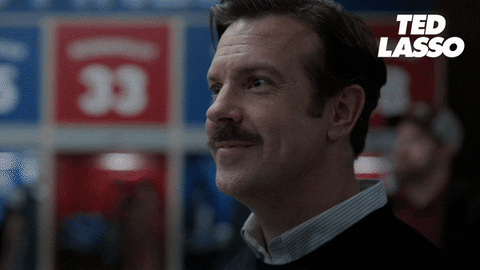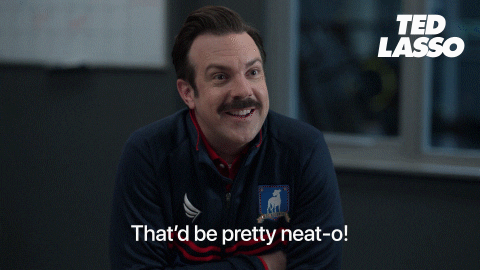"Ted Lasso" (S1-2020) on Winning Friends & Influencing People (1936)
The Subtle Importance of Being Nice
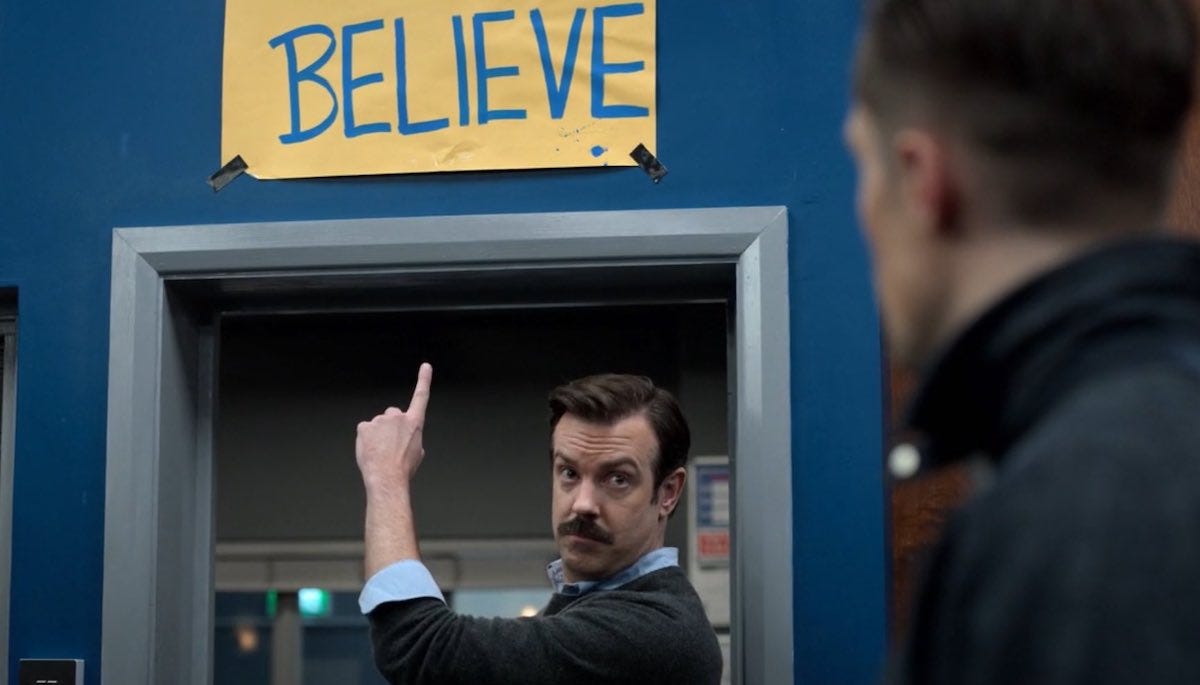
Ted Lasso is a master manipulator. And the best part about him?
He doesn’t even know it.
Manipulation definitely has some negative connotations, but that was the overwhelming, scummy name-of-the-feeling I had when reading Dale Carnegie’s famed and surprisingly well-received novel How to Win Friends and Influence People.
Ted Lasso is the complete opposite of what I felt when reading Carnegie’s self-help book (I seek the advice of the masters, but know I will never implement their wisdom), but much of what he practiced and he who he is as a character falls neatly within the lines of what Carnegie describes as an “influential friend.”
The difference between the two coming from that whimsical, almost imperceptible feeling: intent. While Carnegie’s novel highlighted using kindness and good intentions to get people to do what you want, Ted uses his kindness and good intentions to be himself and because it is the right thing to do.
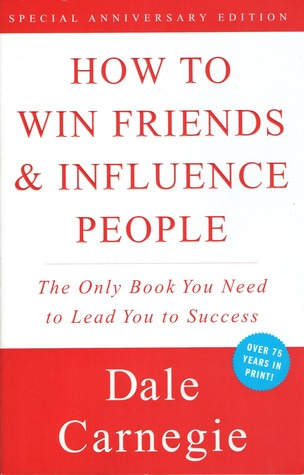
Granted, Carnegie says people should be kind to others no matter what and to be courteous and always understanding, but as a book on business relations and on the human condition, one cannot help but notice the underlying expectation of give-and-take. With Ted, there is none of that underlying desire.
Ted is, Godspeed, just a good guy.
And Ted is also a master at winning friends and influencing people.
If you haven’t seen the show (which I highly recommend for its feels-good characters and interesting plot which is chockful of optimism and healthy relationships), then I’ll give a bastardly short rendition of the synopsis:
Ted Lasso (Jason Sudeikis) is a life-coach first and a soccer-coach second (if that, if we’re being brutally honest). He’s been tasked with taking a premier fútbol (soccer, for you Americans) team and getting them wins. This proves a little difficult since Lasso knows not a single thing about the sport but is slipping-and-sliding on through on ✨ v i b e s ✨ and cheeky southern charisma alone.
It’s very wholesome. It’s very sweet. It makes even the worst of characters somehow charming and affable. Except for Richard. That man knows no boundaries of being a Dick.
Ted Lasso is the titular character with a wonderful little caterpillar of a moustache that proves its creepiness comes with the person and isn’t inherently so.
From the first time we see Ted to the finale of the first season, Ted is charming and wholesome, seemingly too much for his own good— but he is smarter than he lets on, he just doesn’t let us on often.
He smiles at people who are trying to tear him down and you can tell by the crinkle of his eyes and the dimples in his cheeks that he whole-heartedly wishes them the best and nothing but the best.
His saccharine goodness is a little too much for this world, and I probably would have cringed at his goofy kindness 5 years before, but with an influx of negative and melodramatic storytelling saturating the Hollywood landscape, Ted Lasso is a welcome break from our self-inflicted media trauma.
Ted is undoubtedly a good man. We root for him, we want the best for him, we might even want to be like him. Because as incompetent as he seems and as much as he is harassed by the local Richmond-folk for failing their fútbol team, Ted refuses to be anything but his kind, most genuine self.
How refreshing is it to see a man be as wholesome and kind as Ted Lasso?
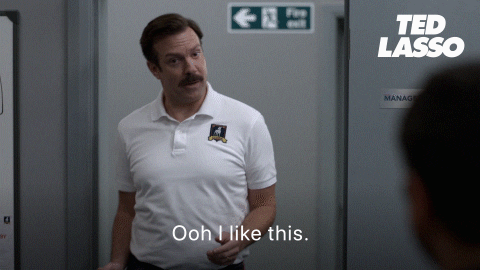
According to the late Carnegie, there are only a handful of steps required to win over people and influence them to do your bidding, and Ted, knowingly or not, does all of them with remarkable success:
How to Handle People
Don’t criticize, condemn or complain (ergo don’t shit where you eat ya heathens). Ted is a jolly good butterfly, often looking at the brightside during everyone’s darkest nights.
Give honest and sincere appreciation, but for the love of god DO NOT LIE. You will not find Ted being anything but honest and sincere, and his genuine care easily wins over many of his less satisfied adversaries.
Engage the other person in conversation they want to hear (usually about themselves because everyone’s a little narcissistic ya feel?). Ted usually redirects the conversation from himself to others and often asks about them instead.
How to Make People Like You
Be genuinely interested in other people because people really are pretty fucking cool as long as they’re not murderers. Being in a new country helps, but Ted is wide-eyed and curious and oh so excited to learn about his peers.
Smile. This one sounds simple and was definitely hard to do during the Global Panera with mask mandates and whatnot, but smiling is one of the best verbal cues in the book of life and Ted does it often, even when no one is there.
Remember their name and use it often. What’s in a name? Nothing but the best way to show you care about them and who they are as a person and Ted immediately learns and uses everyone’s names (think Nate and Leslie and Keeley).
Be a good listener. Encourage others to talk about themselves. Try not to dip your big toe of self-admiration in too much, because you want them to be talking 70% of the conversation. Ted can whip out southern anachromisms but he will lend you an ear and a shoulder so long as you ask for it.
Talk about the other person’s interests and if that means doing your research and virtually stalking them a bit, then so be it. WITHIN REASON. Please. Ted’s always asking about the kids or their personal life or how someone is doing.
Make the other person feel important – and do it sincerely. There is not an insincere bone in this man’s body.
There are also bits on “Winning People to Your Way of Thinking” and “Being a Leader” which Ted touches on as well, but for sake of brevity I’ve disrespectfully slit them out of this newsletter.
(Please read the full, distilled version of the Carnegie’s novel here from fs.blog! They do an amazing job summarizing the book, and this is the best way to speedrun through Carnegie’s lessons because heaven knows he wrote too many outdated examples to count.)
Ted is a master at dealing with people, and he follows many of Carnegie’s core steps to be well-received and well-liked, despite his many shortcomings.
At his heart, Ted is doing his best and wants to make a positive impact on the people he meets. At the base of Carnegie’s novel, he says much the same (once you ahm peel back the capitalist shell to find the beating heart underneath), that as much as you can follow his lessons, it’s about being a personable and caring human being.
If I’ve learned anything from this show and this novel, it’s that kindness is never underrated.




